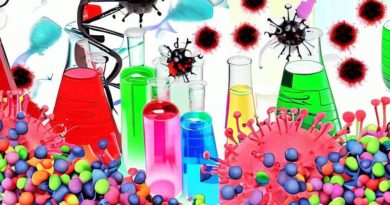Healing COVID Divisiveness… in Families and Friendships Across the Land

To receive Global Research’s Daily Newsletter (selected articles), click here.
Follow us on Instagram and Twitter and subscribe to our Telegram Channel. Feel free to repost and share widely Global Research articles.
***
Introduction
Many millions of families in Western nations have been internally stressed, if not broken, as a result of the global Covid-19 infection and the policies surrounding it.
Note that I do not refer to Covid as a pandemic. The definition of “pandemic” was changed in July 2008, soon before the swine flu “pandemic”, which fizzled. Neither infection would qualify under earlier definitions.[1]
However, the widespread divisiveness that remains in its wake is a pandemic.
During the early months of “flatten the curve,” few would have disputed or resisted the public health instructions to wear masks, keep a distance of six feet, wash hands frequently, and stay home if possible.
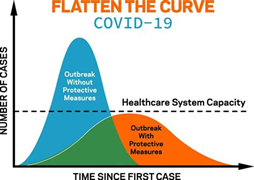
During the first year, with many small businesses failing, governments eased financial disruption with handouts, as most people pulled together to put the disease behind them.
Throughout much of 2020, while the vaccines were still in development, prominent epidemiologists were presenting high-level evidence that early treatment protocols could save millions of lives.[2] This evidence was ignored and/or ridiculed in the media.[3]
Cracks in public confidence began to emerge in December 2020 with the arrival of the mRNA vaccines, along with passports to monitor vaccination status.
Suddenly there was a rift in society between the willing and the unwilling. The latter were not only socially restricted and unemployed, but were systematically prevented from using alternative early treatments by the ubiquitous, media-backed policy of preventing “vaccine hesitancy”.
Social media discipline followed, with any discussion of early treatments causing suspensions and banishments from Twitter, Facebook, and LinkedIn.
But what was happening between the willing and the unwilling in families and friendships across the land?
My Own Case
I am a retired career medical librarian who served public health executives in a large government agency for 25 years. I have written many articles tracking and analyzing Covid policy as it developed.[4]
As a health information professional, accompanied by other health professionals close to the situation, I opted to stock up on early treatment medications rather than to choose one of the new mRNA vaccines, which have had FDA emergency use status only.
When the national US, UK, and European databases started blinking red about Covid vaccine injuries in the spring of 2021, I pointed this out to people in my family, and to my husband’s family, and also reported some of the database evidence on Twitter (from which I was permanently suspended on March 1, 2022).
A member of my immediate family and two of my closest long-time friends have been dismayed at my position – one indicating that it was based on a character flaw. These relationships are on hold, with no contact.
My husband’s family opted for vaccination. Although the incessant drumbeat tested our relationships, we chose to keep them strong and loving.
Others, whom I know more casually, have withdrawn their warmth and in the street simply nod to me.
What is at the Heart of this Divisiveness?
Everyone within reach of a news source on this planet has heard the singular narrative that Covid-19 is a frightening 100-year pandemic with only one solution: vaccination.
This has been repeatedly emphasized every day for more than two years.
Its effect on populations has been analyzed by Belgian clinical psychologist and professor, Dr. Mattias Desmet.
Desmet has identified the population effect as mass formation psychosis. He says that about 30% of people are solidly hypnotized by the public health media barrage. A further 40% go along with it, and only 20-30% remain free of its power.[5]
So there is great divisiveness. Within this divisiveness, two important things may be constructively discussed between people who are in conflict:
1. Sources of Information:
Often when people are arguing, they have been influenced by different sources. The argument is most primarily between the sources, rather than between those who read them. This is why the alternative sources have been suppressed and censored: So that many people will believe there is no argument.
Thus it is very important to start the discussion by considering the sources that each has read or listened to. Ultimately, it is the sources that disagree, and if people want to preserve their relationships, they should trust each other to look at each other’s sources together.
This is challenging because the most qualified sources that disagree with the singular narrative have been actively suppressed and censored by the Trusted News Initiative,[6] and by social media. Many health professionals know this, and their family and friends really should be open to what they have to say.
2. The Need to be Right:
Most families were already subject to the ordinary pressures of life before Covid came along. Even before Covid, basic family dynamics under the pressures of life kept psychologists, antidepressants, and divorce lawyers in business.
Underneath it all has been the fragility of self-worth, which inevitably looms up when people are in disagreement or conflict.
Disagreements and conflicts always point to the possibility of being wrong.
Being wrong is something no one wants to be. In competitive argument it is a losing position. Being right, on the other hand, is a dominant position. Conflict is about winner over loser, about strength over weakness, about being admired over being disdained.
So it is no wonder that the two positions during a reportedly lethal global pandemic – being vaccinated or unvaccinated – have become so utterly contentious and divisive.
The unvaccinated are constantly aware of their pariah status among Desmet’s completely hypnotized 30%.
Meanwhile, if the new mRNA injections are indeed causing unprecedented adverse effects, acknowledgement of this puts some of Desmet’s 40% who went along with vaccination into a state of unsettled anxiety.
Not to mention those among Desmet’s independently aware 20-30%, who feared the new injections but capitulated to save their jobs, marriages, and social status.
It’s an ugly situation – an ongoing divisiveness across society unlike any other we have experienced as a culture.
How can we Heal this Situation?
This is perhaps the most important question we are facing.
How can people who are on opposite sides of what they have been led to believe is a life-and-death issue, resolve their positions without losing face?
These questions, in this order, might be useful to ponder:
1. Were there already unresolved stresses in your relationship(s) before the pandemic, which then became worse?
2. Do you trust the character of the persons/people you are at odds with?
3. If yes, do you want to have the relationship(s) restored to good faith?
4. If yes, are you willing to examine the information sources that those you disagree with have been trusting?
5. Overall, do you embrace the idea that the Spirit is in each one of us, that everyone is born good and wants happy relationships?
6. If so, are you willing to try to rise above conflict by encouraging transactions among the various personality types, based on the “I’m OK; You’re OK” approach to peace?[7]
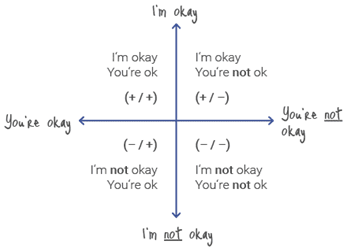
Negative Emotion: We Must Find Another Way of Being
Many of us are addicted to negative emotion.
Indeed, negative emotion has increasingly captured society as a whole through the incessant media preoccupation with fear, fear, fear – and panic.
Recently, Canadian Members of Parliament were issued with “panic buttons” in case members of the public threatened them. What would Winston Churchill have said about the implied “panicky” Members of Parliament? Do we have frightened people running the country?
Perhaps we do. Philosopher P.D. Ouspensky in his book, “The Fourth Way,” notes that “there is not a single useful negative emotion, useful in any sense. Negative emotions are all a sign of weakness.”
As one author has summarized him:
Many of us dwell on the negative far past the time when it is relevant, allowing it to diminish the joy of the present. In politics, in jobs, in personal life, we take great liberties in imposing our negative emotions on others, and we often derive a great deal of pleasure from it. Ouspensky points out that “almost all of our personal negative emotions are based on accusations, somebody else is guilty,” but if we realize “we are the cause of all that happens to us, that changes things…” He goes on to say that “You do not realize how much you lose by these spontaneous manifestations of negative character. They make so many things impossible.”[8]
Most specifically, they make love impossible.
And as the world’s great religions agree — and which Martin Luther King’s grandfather observed:
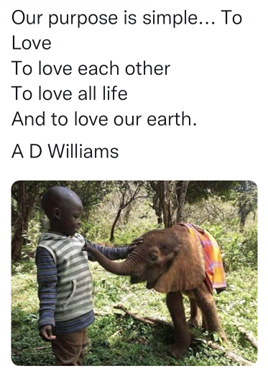
In conclusion, it’s time to consciously acknowledge and overcome the spiritual weakness that has been revealed in the West — by its panicked, divisive response to a virus with a very high infection survival rate:
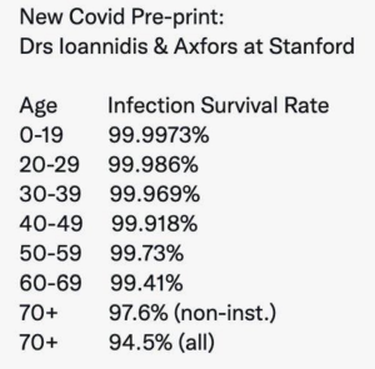
*
Note to readers: Please click the share buttons above or below. Follow us on Instagram and Twitter and subscribe to our Telegram Channel. Feel free to repost and share widely Global Research articles.
This article was originally published on Lizzy’s Newsletter.
Elizabeth Woodworth is highly engaged in climate change science and activism. She has published 42 articles on Global Research, is co-author of “Unprecedented Climate Mobilization”, “Unprecedented Crime: Climate Science Denial and Game Changers for Survival,” and co-producer of the COP21 video “A Climate Revolution For All.” She is author of the popular handbook on nuclear weapons activism, “What Can I Do?” and the novel, “The November Deep”. For 25 years, she served as head medical librarian for the BC Government. She holds a BA from Queen’s and a Library Sciences Degree from UBC.
Notes
[1] Ron Law, “WHO Changed Definition of Influenza Pandemic,” BMJ, 06 June 2010 (https://www.bmj.com/rapid-response/2011/11/02/who-changed-definition-influenza-pandemic ). See also https://en.wikipedia.org/wiki/2009_swine_flu_pandemic
[2] U.S. Senate Committee on Homeland Security and Governmental Affairs, “Early Outpatient Treatment: An Essential Part of a COVID-19 Solution,” 19 November 2020, (https://www.hsgac.senate.gov/hearings/early-outpatient-treatment-an-essential-part-of-a-covid-19-solution ).
[3] Ashish Jha, “The Snake-Oil Salesmen of the Senate,” New York Times, 24 November 2020 (https://www.nytimes.com/2020/11/24/opinion/hydroxychloroquine-covid.html ).
[4] https://muckrack.com/elizabeth-woodworth/articles
[5] Mattias Desmet, “How To END The Phenomena Of Mass Formation Psychosis, 2 November 2021
[6] Elizabeth Woodworth, “COVID-19 and the Shadowy ‘Trusted News Initiative’
How it Methodically Censors Top World Public Health Experts Using an Early Warning System,” 22 January 2022
(https://www.globalresearch.ca/covid-19-shadowy-trusted-news-initiative/5752930). See also short video, “What is the Trusted News Initiative,” 2 January 2022, 3:55 min
[7] “I’m OK, You’re OK – How to Develop Your Attitude,” (https://ta-course.com/im-ok-youre-ok/ )
[8] Jessica’s blog, “Ouspensky’s ‘The Fourth Way’ and Negative Emotions,” 14 September 2012 (https://searchingforthegracefulmuse.blogspot.com/2011/07/ouspenskys-fourth-way-and-negative.html ).
All images in this article are from the author
